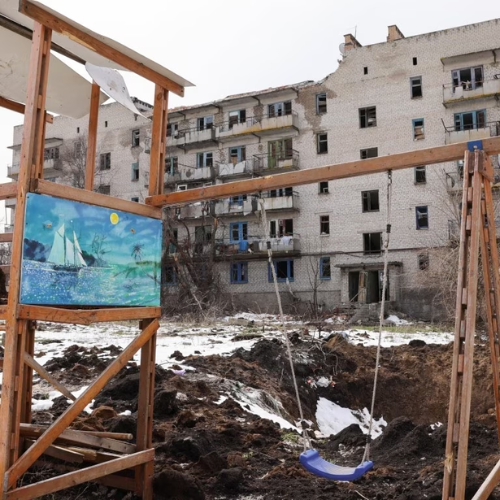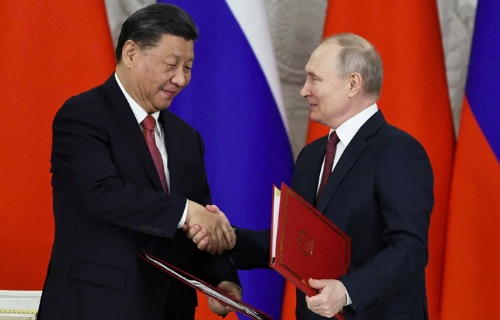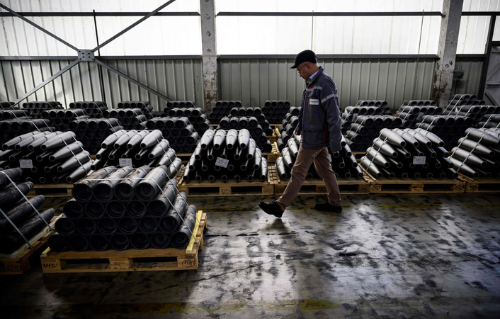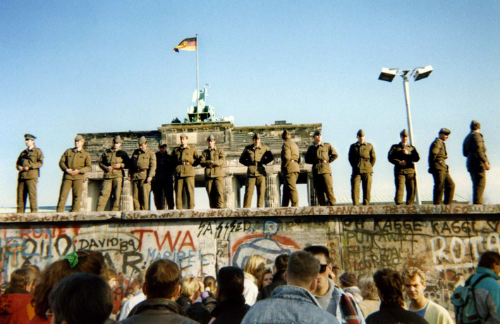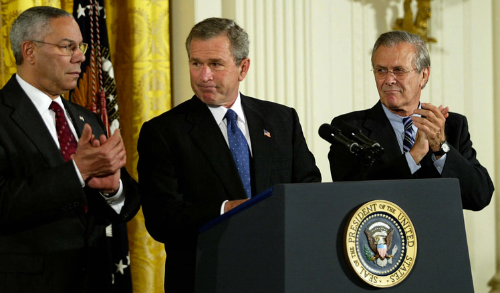Bush-era neocons inaugurated a period of militaristic interventions in the Middle East and Afghanistan, and current neocons are recklessly engaging in discussion about a potential war with China with a range of provocations.
Such actions disregard the catastrophic effects of American overreach over the last 50 years, perpetuating a cycle of violence and instability across the world. The oversimplification of the virtues of democracy and the belief in its universality have led the West to forget the complexity and plurality of our world, resulting in a widespread dismantling of diplomatic norms and principles and the imposition of neo-imperialist ideas. The inherent belief in a deep-rooted sense of superiority over others has deeply undermined the West’s credibility on the global stage.
Yet the West seems deaf to the voices of the global majority who are calling for peace. This aggressive and unilateral approach to addressing geopolitical issues – aided and abetted by a mainstream media captive to the objective of promoting the ideologies of Western powers – has led to an unfortunate trend to which Western political elites, and even the general public, appear to be tone deaf. This is the trend of the global majority turning against the West, among them many elites who were educated in the West and even those who had believed in the benefits of greater Westernisation.
Instead of focusing on building bridges and finding common ground for peace, the West has increasingly sought to shore up support among its allies and castigate or demonise its enemies. This is the antithesis of diplomacy and should have no place in the complex and fragile world we live in.
In the case of Europe, we have seen the region becoming increasingly subservient to the US, forgoing diplomacy for confrontation. US exceptionalism has resulted in the creation of a class of politicians who believe in the doctrine of “you are with us or against us” and there is a real danger this is spreading into Europe. Anyone of stature who merely proposes ideas about Iran, peace with Russia, or engagement with China, is met with disdain and rejection. Such groupthink has engulfed the continent, stifling discussions of peace and acceptance of a multipolar world.
Unfortunately, Western peacemakers have become increasingly less influential in the public sphere and political circles. Instead, aggressive rhetoric has become the common currency. This suggests a growing insecurity arising from the fear of a coming post-Western world order, rather than of realists seeking to mould a world where power is shared fairly.
But it is not too late for Western leaders to embrace a more nuanced and effective approach, and thus start to make more friends than enemies.
This is why the West should not act like it is allergic to China’s peacemaking efforts. Other significant players such as India, Indonesia – both hosts of the G20 – and even smaller nations like the United Arab Emirates and Singapore should lend their weight and credibility to these new efforts at making peace.
The charge for peace in troubled regions of the world should be led by a global diplomatic corps consisting of the most experienced diplomats from Asia, the Middle East, Latin America and Africa. For far too long, this responsibility has fallen to Western diplomats and the results have been disappointing due to wide-ranging abuse of that privilege.
Non-Western diplomats are embracing alternative approaches, moving beyond outdated concepts such as “alliances” and towards systems of “solidarity” between non-Western nations. The traditional approach of forming alliances to pit one region against another is no longer effective in today’s world.
We are already witnessing a shift towards a new system that prioritises collaboration and mutual respect. The rise of non-Western diplomatic channels and blocs, such as Asean, the Shanghai Cooperation Organisation and BRICS, is a clear indication of the changing global balance of power and the need for diverse perspectives in international diplomacy. It is time to harness the potential of these alternative approaches to forge a more peaceful and just world.
Every nation, regardless of its size or power, must step up to the plate and share the burden of promoting peace and stability. If Western peacemakers continue to be undermined by warmongers and those with a stake in the business of war, they should not be surprised when other nations take charge of this all-important task.


